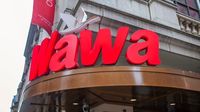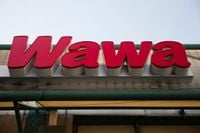Wawa, the beloved convenience store chain, is set to close two of its locations in Philadelphia, marking a significant shift in its operations within the city. The store at 6506 Frankford Ave. will cease operations on April 22, 2025, while the Castor Ave. location at 6919 will close just two days later on April 24, 2025. This decision comes as Wawa has been reevaluating its store performance and adapting to the changing needs of its customers.
According to a Worker Adjustment and Retraining Notification (WARN) notice sent to the Pennsylvania Department of Labor & Industry, Wawa has closed nearly a dozen locations within Philadelphia since 2020. The letter, which was dated April 3, 2025, indicated that all employees at the closing stores would be offered positions at nearby locations.
“Over the years, our store design and product offerings have changed to meet the ever-evolving needs of our customers,” said Miriam Enriquez, Wawa’s director of government relations and corporate social responsibility, in the WARN notice. “Every year, we evaluate our stores across our chain including performance, conditions, operational challenges, or the possibility to modernize them. At times, we must make the difficult decision to close some of them. We hope to continue serving the community from our other stores located nearby.”
In a bid to soften the blow of the closures, Wawa plans to offer free coffee to customers at both locations on the last day before their respective closures—April 21 for Frankford Ave. and April 23 for Castor Ave. This gesture is part of the company’s effort to maintain goodwill with its customers.
Wawa, which began as an iron foundry in New Jersey in 1803, has grown significantly over the years. The company transitioned to dairy farming in the late 19th century, and in 1964, the first Wawa Food Market opened its doors. Today, Wawa operates more than 1,100 stores across several states, including Pennsylvania, New Jersey, Delaware, Maryland, Virginia, Florida, North Carolina, Alabama, Georgia, Ohio, and Washington D.C.
Despite the closures, Wawa remains committed to its growth strategy. The company still maintains 19 stores within Philadelphia city limits and has plans to open 95 new locations by the end of 2025, with a focus on modernizing its older stores and expanding its convenience offerings.
Lori Bruce, a senior manager of media relations for Wawa, emphasized the company’s commitment to the Philadelphia market. “Whenever possible, we modernize our older stores rather than close them,” Bruce stated in a recent email. “At the same time, our plans for growth remain strong.”
Wawa's CEO, Chris Gheysens, recently highlighted the challenges the company faces in the current economic climate. Speaking to a group of business professionals in West Chester, Gheysens noted that consumer spending has slowed over the past 18 months. “What we see in our stores in this region is people are shrinking what they get. I might have gotten three items, but now I’m getting two,” he explained, attributing this trend to inflation fatigue.
As Wawa navigates these challenges, it continues to adapt its business model to meet changing consumer preferences. The company has shifted much of its expansion efforts toward convenience stores that feature gas stations and electric vehicle charging hubs, reflecting a broader trend in retail.
Wawa’s anniversary on April 16, 2025, coincides with the 61st year since the opening of its first store in Folsom, Pennsylvania. To celebrate this milestone, Wawa is offering free coffee at all its locations nationwide, reinforcing its connection to the community.
While the closures may be a setback for some, Wawa's leadership remains optimistic about the future. The company is focused on modernizing its stores and enhancing the customer experience, ensuring that it can continue to serve its loyal patrons effectively.
As Philadelphia residents bid farewell to the two closing locations, they can take comfort in knowing that Wawa remains a staple of convenience and community in the region, with plans for continued growth and modernization.





